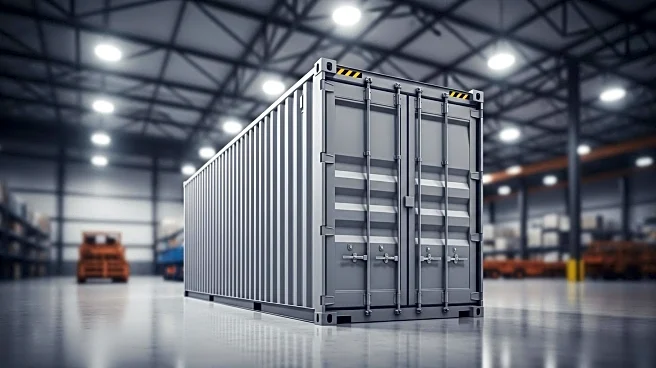What's Happening?
A recent survey of shippers and carriers highlights cost as the primary consideration for more than half of shippers when selecting a carrier. Other factors include on-time pickup, delivery reliability, and favorable shipment schedules. To address these concerns while maintaining profitability, fleets are exploring various strategies to improve fuel economy. Adjusting electronic engine parameters can lead to fuel economy gains of 5% to 8%, depending on previous configurations. Training drivers to operate vehicles with fuel efficiency in mind and investing in aerodynamic devices and tire pressure monitoring systems are additional measures being considered.
Why It's Important?
The logistics industry is under pressure to balance cost efficiency with service reliability. As fuel costs remain a significant portion of operating expenses, improving fuel economy is crucial for fleets to remain competitive. By reducing costs, fleets can potentially pass savings onto shippers, enhancing partnerships and customer satisfaction. This focus on efficiency not only benefits shippers but also contributes to the fleet's bottom line, ensuring long-term sustainability in a competitive market.
What's Next?
Fleets may continue to invest in fuel efficiency technologies and driver training programs to further enhance their operational efficiency. As shippers prioritize cost, fleets that successfully implement these strategies could see increased demand for their services. Additionally, ongoing advancements in technology may offer new opportunities for fleets to optimize their operations and reduce costs.
Beyond the Headlines
The emphasis on cost efficiency in logistics could lead to broader industry shifts, including increased adoption of sustainable practices and technologies. As fleets strive to improve fuel economy, there may be a growing focus on environmental impact and regulatory compliance, potentially influencing industry standards and practices.









